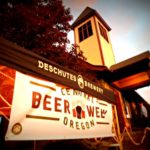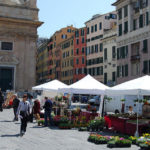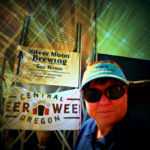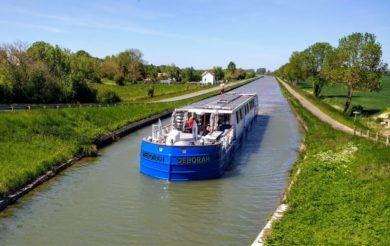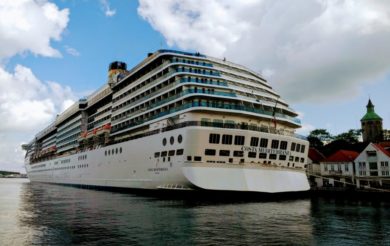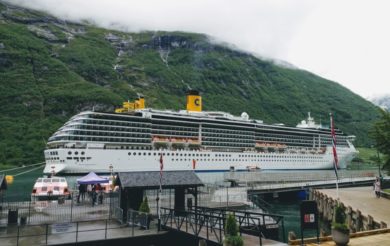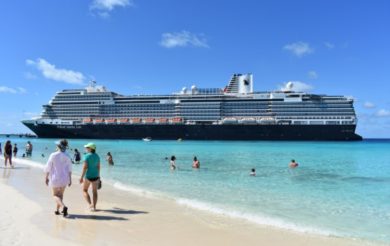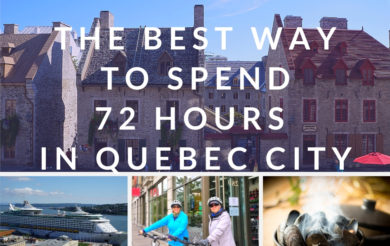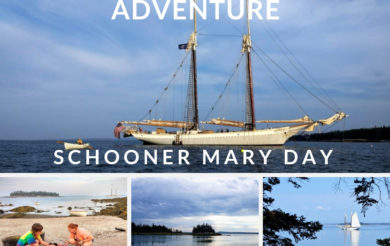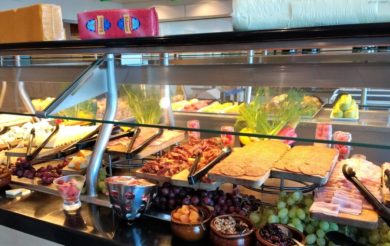Pittsburgh Steel City Sampler – Rust Belt Culinary Tour
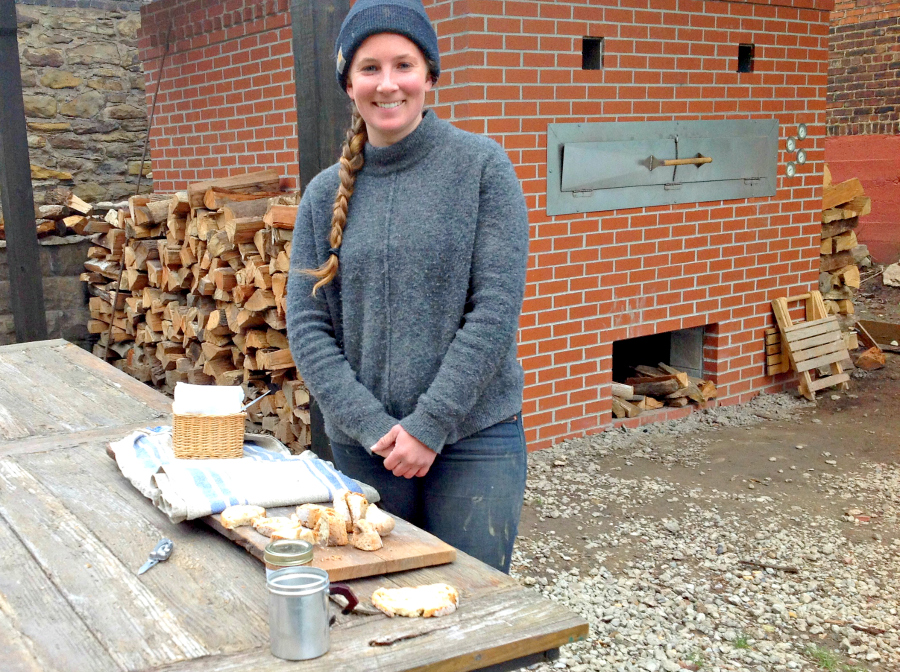
Pittsburgh’s Rust Belt Steel City Sampler – Baker’s Community Brick Oven
Pittsburgh Steel City Sampler – Rust Belt Culinary Tour
Travel Pennsylvania: Pittsburgh’s Smoggy Past Replaced with Culinary Delights
By Habeeb Salloum and Muna Salloum
Pittsburgh, with its vast array of fine dining establishments, multicultural delis, bakeries, cafes, and themed bars also offers some delicious gems outside of its Strip District. However this was not always so.
The city is in the region known as the ‘Rust Belt’, an area in the U.S.A. that experienced economic decline, population loss and urban decay because of the decline of its once powerful industrial sector. By the early 1980s, the area’s steel and electronics industries collapsed causing thousands of their workers to lose their jobs. This once golden region of industrialization lapsed into a keg of rust.
However, the city turned itself around and shifted its economic base to education, tourism, sustainability projects, and services that include health care and medicine, finance, and high technology especially in the field of robotics. With this surge of change and new activities came new life into the food industry. Pittsburgh of the dirty mills and plants has surged forward away from that past and is alive with the aromas of its multicultural ethos. And this food culture is based upon the continuity of the cooking traditions and food stuffs introduced by the first generation immigrants who mainly came from Poland, Germany, Italy, Ireland, and Croatia.
To feel the transformation of Pittsburgh from a steel town to a city that has changed its past into a world of eateries, the Steel City Sampler – Rust Belt Culinary Tour is a must. Once a thriving steel town, the area is now part of Pittsburgh’s renaissance on the Rust Belt. This area of Pennsylvania was and still is home to immigrants. Pittsburgh’s Steel Valley in the early 1900s was peppered with shops, bakeries and beer halls. However, during the 1980s when the mills closed down the area became void of activity as the population of the region declined drastically.
Times have changed thanks to savvy entrepreneurs who participated in the Pittsburgh area food renaissance. This tour is the best way to witness and sample the growing tide of food culture re-igniting the area as a center of now trendy Rust Belt cuisine.
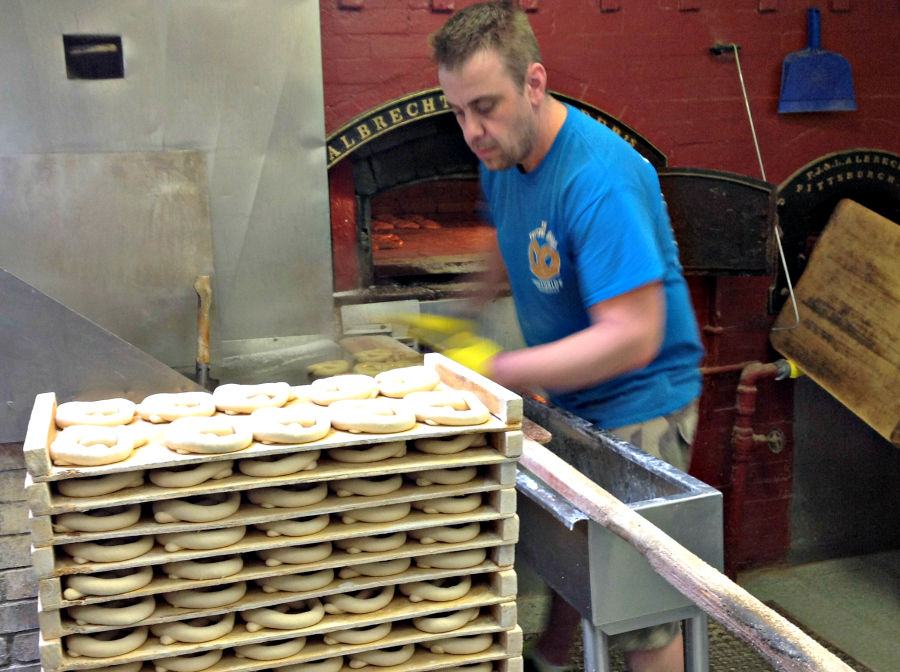
Pittsburgh – Rust Belt Steel City Sampler – The Pretzel Shop
Our first stop was the delightful family-owned The Pretzel Shop. Here we watched soft pretzel-making in action. Marlene Bowen, owner of this small but flourishing bakery gave us the history of her family’s business. Her seven children all assist in this venture that she and her husband began in 1981. Marlene continues the tradition of the Pittsburgh immigrant women who spent their lives helping their families to succeed in life.
Life for the immigrants was hard and women did more than their share. Boarding houses, mostly run by women, were common throughout the city. Some were even referred to as “Hot Bed Boarding Houses” where beds were occupied by shifts of men working at the mills and replaced by other men coming off the shifts. The beds were always hot never to be left cold!
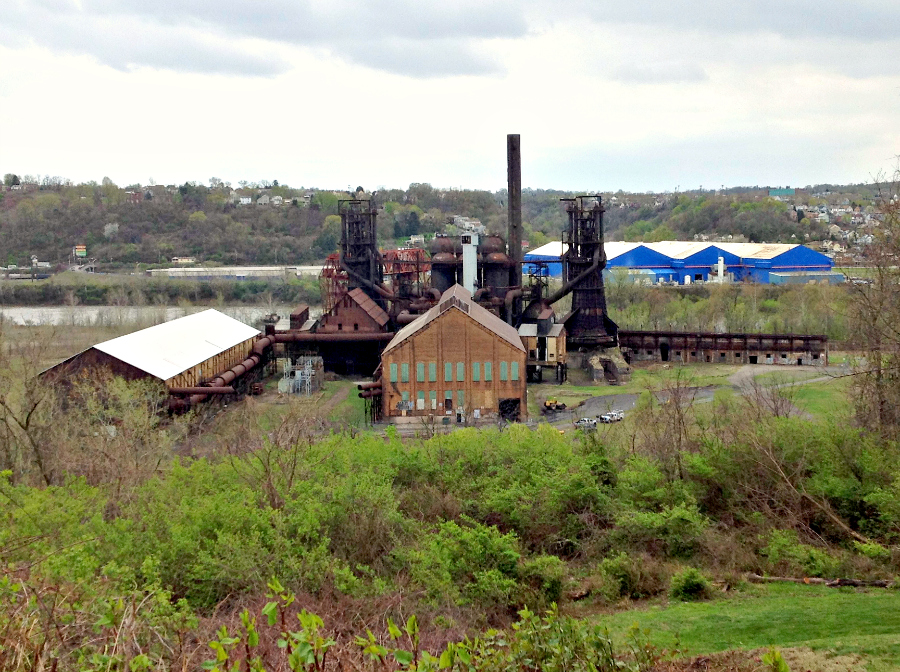
Travel Pennsylvania: Pittsburgh Rust Belt Steel City Sampler – Former steel mill near The Triangle
Above all, women had to keep their families together while their husbands worked long and tedious hours in the mills. As our guide Beth explained, the steel mills represent “the hell of life that people went through and this is how America became rich”. Marlene reminded us of these hard-working women as she went about her work managing the shop that produces 2,000 pretzels each day. She went on to tell us an interesting anecdote about the pretzel. According to folklore, it was developed by monks in Germany, its three sections representing the Holy Trinity.
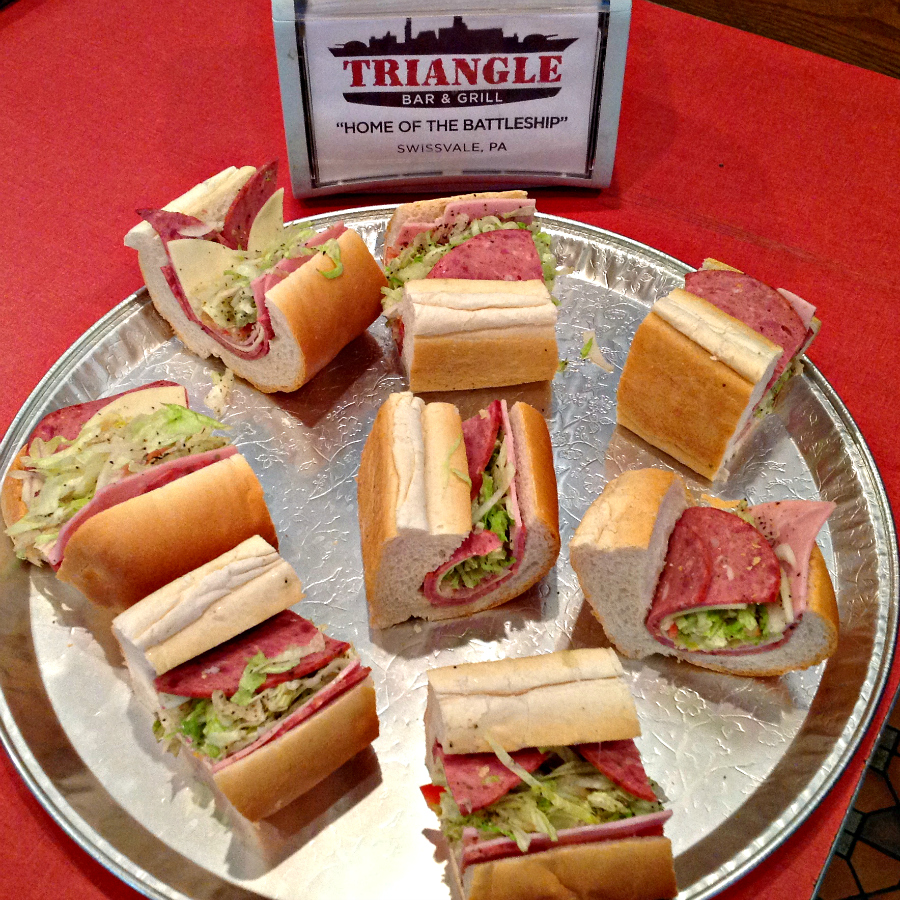
Pittsburgh Rust Belt Steel City Sampler – The Triangle Battleship Sandwich
We sampled these hot, slightly-salted soft pretzels and we were on our way to Triangle Bar and Grill, home of the Battleship, Destroyer and Torpedo Sandwiches. As we entered the bar area, nothing seemed unusual about the premises. However, what stood out was that there were no standard bar foods served with the drinks. Instead, the Triangle offered sandwiches the size on which Paul Bunyan would even be stuffed. The size of the sandwich determines its name. Soon our group was devouring the Battleship which had been sliced into about twelve, each piece a meal in its own.
Current owner Tom Crombie explained that in the early steel mill days, the Triangle was a local mill-worker’s bar and its owner was a navy veteran, hence all the sandwiches were named after various naval ships. It is located overlooking a valley where a former steel mill that once increased the smog of Pittsburgh now acts a tourist drawing card.
In the freezing April weather we were herded off our warm bus in the suburb town of Braddock, home to Edgar Thomson Works where a steel mill is still in operation. Here we met Shauna Kearns, a Canadian who came to Braddock to contribute her talents in baking bread at her Baker’s Community Brick Oven. She began her business with a small outdoor brick oven and has now graduated to a larger version, more updated with the capacity to produce more loaves for the Braddock Community. It just might become the major life force in this small suburb that at one point was on the way to oblivion.
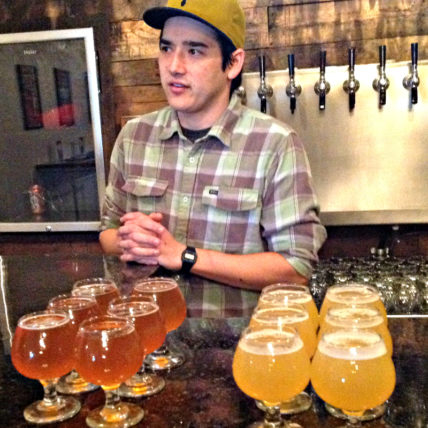
Pittsburgh Rust Belt Steel City Sampler – Brew Gentleman Beer Company Brewery’s Matt, Co-founder and CEO
After sampling her rustic bread we left for the Brew Gentleman Beer Company Brewery and Taproom, a new business that will surely change the tide of Braddock’s being. Entering the premises first, I asked the young man at the counter whether the owner was available. He chuckled and announced himself as Matt Katase, Co-founder and CEO of the beer company. Barely looking like the age of majority, Matt is a professional with the wisdom of a well-experienced entrepreneur.
Matt and the other Co-founder, Asa Foster, met each other as students at Carnegie Mellon University in 2008. By the age of 21, they had decided to open up a brewery business. Immediately upon graduating in 2012 they scouted for the right location and chose Braddock having read about the planned revitalization there. Kudos to these two young men who gutted the old electrical building and, on their own, renovated the old structure.
Within a few minutes, Matt offered our group a choice of their “ambitious craft beers”, as they call them: their flagship beer, the “White Sky Chai” made with a spiced wheat; and “Galaxy Saison”, a modern farmhouse ale with a juicy character. As we sipped our Chai beer Matt envisioned his plans for the future of the brewery. Both he and Asa have ideas for new flavours and with their dedication and passion for what they do, their beer company, without doubt, will become the ‘Starbucks’ of breweries. With its opening day in May 2014, the brewery has firmly established itself as a successful business in town.
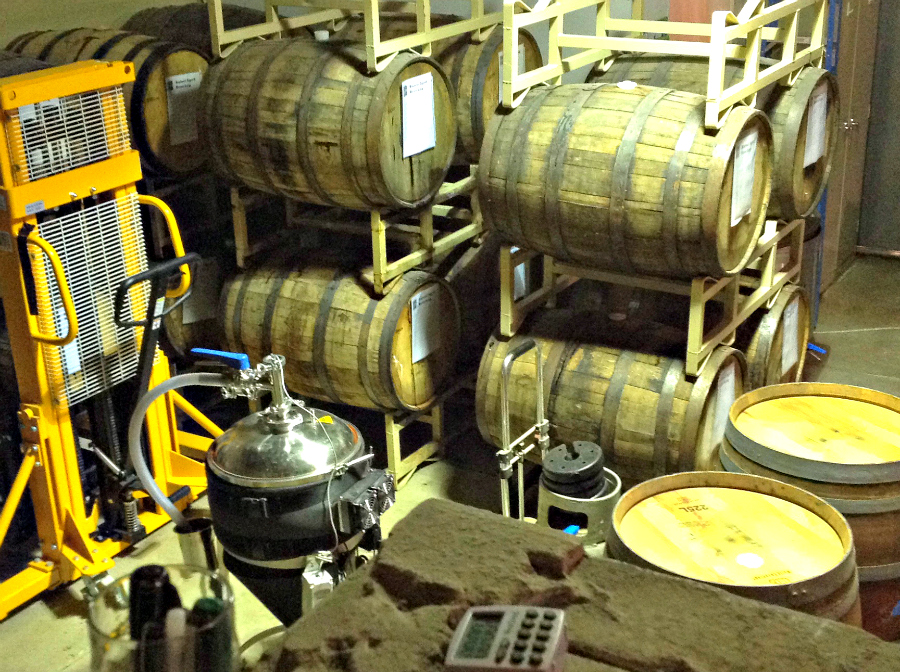
Pittsburgh Rust Belt Steel City Sampler – Brew Gentleman Beer Company Brewery
After touring the brewery, we left for the Carpatho-Rusyn Cultural Society Centre that houses a genealogical room, a cultural auditorium, a gift shop, and the Carpatho-Rusyn Society National Offices. This part of the tour, although not culinary, gave us a glimpse into a part of Pittsburgh’s multi-cultural history. The Carpatho-Rusyns belong to the Slavic branch of Indo-European peoples. Their homeland known as Carpathian Rus’ is located at the point where the borders of the Ukraine, Slovakia, and Poland meet. Their connection with Pittsburgh is well established, one of their world-renowned sons being Andy Warhol, a leading figure in pop art.
Our last stop was the Blue Dust Beer Bar and Gastro Pub in Homestead located at the former entrance to the Homestead Steel Works mill. It is a family-owned pub that specializes in its own recipe for smoked meats. You can’t leave without trying their sliders. We had the absolutely delicious pulled pork, seasoned just right, the pork having been smoked over hickory or apple wood. Jerry Miller, owner of the Blue Dust, made it clear that his meats give the taste that you can’t get at home. It’s well worth the time to visit the Blue Dust to try out its craft beers, house-infused vodkas, and their various simplistic yet delicious comfort foods with many vegan options.
With the taste of the sliders still with us, we ended our tour of the Steel City Sampler. It was tasting-journey of this and that and everything, mostly at the gourmet level that made us forget the blast furnaces of the steel mills that had once made Pittsburgh a smog-filled city, now replaced by a nouveau Pittsburgh cuisine. Pittsburgh has risen from the smog and ashes of the past on the road to a sustainable and welcoming culinary world.
IF YOU GO:
Places visited on the Rust Belt Steel City Sampler Culinary Tour:
- The Pretzel Shop
- Triangle Bar and Grill: 2122 Monongahela Ave., Swissvale, PA 15218
- Baker’s Community Brick Oven: 1135 Braddock Ave., Braddock, PA 15104
- Brew Gentleman Beer Company
- Carpatho-Rusyn Cultural Society: 915 Dixon St., Munhall, PA
- Blue Dust
BIO:
Habeeb Salloum is a Canadian author who grew up in Saskatchewan, joined the RCAF during the Second World War, and then worked for the Canadian Department of National Revenue for 36 years. For the last 30 years he has been a full-time freelance writer and author specializing in food, history and travel. Besides 7 books and 20 chapters in books, he has had hundreds of articles about culture, food, travel, history and homesteading in western Canada appear in such publications as the Toronto Star, the Globe and Mail, the Western Producer, Contemporary Review, Forever Young, Vegetarian Journal and Saveur.
Habeeb was awarded the 2013 Saskatchewan Tourism Travel Media Award by the Saskatchewan Tourism on April 10, 2014 for his literary work on travel, tourism and the culinary arts of that province.


